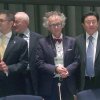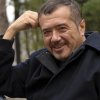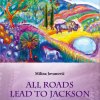In interactive panel discussion, except Ivan Tasovac, keynote speakers were Mr Thomas Campbell, Director of the Metropolitan Museum of Art, Anthony Tommasini, the Chief Music Critic for the New York Times and Ms Miri Ben-Ari, Grammy Award Winning Violinist and Goodwill Ambassador of Music at the UN Brazil.
.Below you can read Mr Ivan Tasovac’s speach.
„Distinguished Mr. President, distinguished colleagues, ladies and gentlemen,
The century we live in is clouded by apprehension, uncertainty, unexpected political twists and turns, in which nobody can be sure of positive outcomes of their affairs. Our time is one of crisis, a time of rapid technological revolutions that accentuate the differences between developed societies and those whose specific features hinder their development. Nevertheless, the whole world is our birthplace and the absence of culture in it is inconceivable.
One of man’s inherent qualities is the urge to express himself in various metaphorical ways, as well as to consume other people’s expressions. Culture is humane, violence-free; it is both our servant and our master.
Where system-wide support to culture falls short, it makes fertile ground for its substitute to flourish in the form of the industry of entertainment, fashion, style, false codes and ephemeral phenomena, all of which are intended to be dominant over culture. Disguised as culture, entertainment is momentary: short-lived wonders cannot be preserved as heritage.
Although we can always rely on the response of culture’s own immune system, a proper strategy facilitates culture’s efforts in finding its strength and power. Support to culture, by strengthening and supporting cultural institutions, through private or public funds, is the right way to remove all obstacles for and uneasiness about consuming culture in all its diversity and magnificence.
Today, the world is facing an economic mega-crisis. Only the cultural institutions capable of ensuring their financial survival are free to develop their strategies towards their original goal – the presentation of art and spiritual heritage. It is their right, one that is also closely related to the obligation to abandon their prejudices. The encrypted language of art contains a code that eliminates misunderstanding, distrust and intolerance. Thus, through understanding and acceptance, it suppresses ignorance and estrangement.
With all its diversity, culture contributes to reconciliation and creates an auspicious atmosphere for restoring the relations that have long since deteriorated or have become unproductive. At the same time, development of partnerships is a fail-safe way to ensure sustainable development of economic cooperation.
Culture does not take sides; it is a reliable partner of all sides, in pursuit of more humane and relaxed relationships that have been burdened with overblown conflicts and distrust. It permeates all relations and, as such, it is an indispensable associate. It speaks all languages, respects differences and plays with them in an endless spiral of change.
Culture still remains a unique constant that strengthens and continually changes an individual. It offers relief from fear, shame and suspicion. Once relieved, an individual is capable of changing his environment and the entire community by enhancing its capacity to understand and enjoy culture produced by others. At that stage, progress is ensured, which is also one of the Millennium Development Goals.
In this process, culture becomes a goal, an irreplaceable engine of development, civilisation’s legacy that powers the entire planet. Culture becomes a synonym for life, but unlimited by space and time; it becomes everyone’s property without actually belonging to anybody.”





